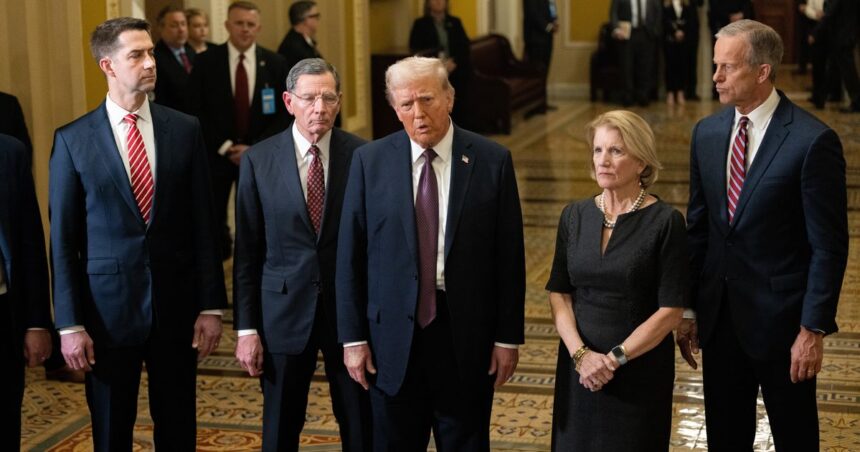The Trump administration’s plans for a smooth transition and quick legislative wins have hit a roadblock as Congressional Republicans struggle to come to a consensus on key policy issues. With Trump’s inauguration looming, Republicans in both the House and Senate are at odds over how to move forward on crucial issues such as border security, military funding, energy policy, and tax cuts.
In the House, where 218 votes are needed to pass legislation, the GOP’s slim majority of 219 members has made passing major budget bills a challenging task. Additionally, several of Trump’s nominees for top administrative positions are facing uncertain confirmation prospects, further complicating the situation.
The main point of contention for Republicans is whether to pursue a quick standalone bill on border security and energy or combine these issues with a comprehensive tax cut package. The debate has left many GOP senators frustrated, with some feeling that the party is wasting valuable time.
President Trump has expressed disinterest in getting involved in the decision-making process, urging Congressional Republicans to find a resolution. While some lawmakers advocate for a single comprehensive bill, others argue for a piecemeal approach to address different issues separately.
In order to bypass a Democratic filibuster in the Senate, Republicans must first pass a budget resolution outlining their tax and spending priorities. This has further complicated the decision-making process, as lawmakers must decide whether to include tax cuts in the initial legislation.
House Ways and Means Chair Jason Smith has been a vocal proponent of the one-bill approach, emphasizing the need to address concerns from Republican members in Democratic states regarding the SALT cap. The inclusion of tax cuts in a larger legislative package could help alleviate some of these concerns.
Despite the challenges, Trump remains optimistic about the outcome, emphasizing the importance of reducing taxes, creating jobs, and achieving legislative victories. While the path forward remains uncertain, lawmakers continue to grapple with the complexities of the tax code and the intricacies of crafting a comprehensive legislative package.
As the administration pushes for swift confirmations of Cabinet nominees, some controversial picks like Tulsi Gabbard and Robert F. Kennedy Jr. face scrutiny from skeptical GOP senators. Pressure to confirm nominees quickly has led to some Republican committee chairs scheduling hearings before key documents, such as background checks or ethics reports, are available.
The debate over legislative strategy and confirmation of nominees highlights the challenges facing the new administration and the Republican-controlled Congress. With critical decisions looming, lawmakers must find common ground to advance Trump’s policy agenda and deliver on his campaign promises.








